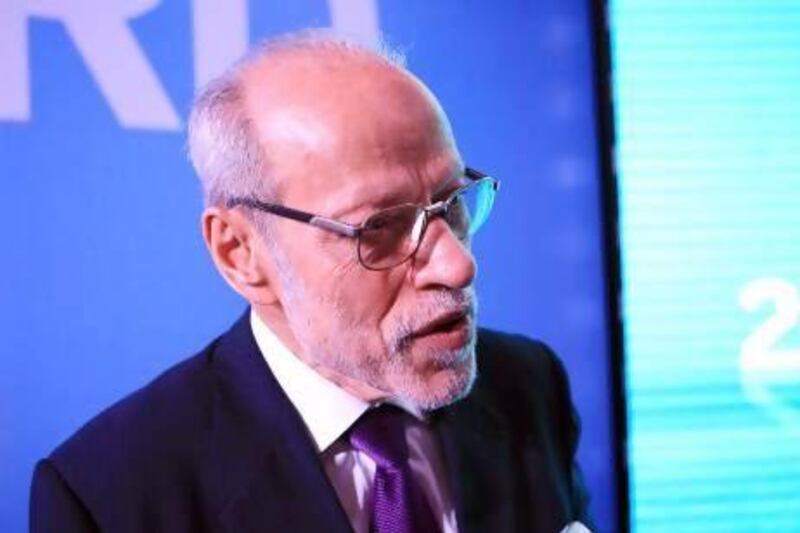ABU DHABI // Europeans could soon be furnishing their houses with pieces built from date palm trees.
A venture which employs local farmers to make furniture and parquet flooring out of the trees, won second place in the best development project category at this year’s Khalifa International Date Palm Awards.
The project was developed by Dr Hamid Ibrahim El Mously, the chairman of the Egyptian Society for the Endogenous Development of Local Communities in Cairo.
“We had a lot of neglected palms and yet we import wood from outside, which is unsustainable,” he said.
“Bringing wood from Canada, the US or Finland is ridiculous when we have something which is really much like imported wood.”
He was speaking on the sidelines of the awards' ceremony, held at the Emirates Palace in Abu Dhabi yesterday.
Using the palms’ neglected midribs, farmers were able to build new products such as parquet pieces.
“Palm leaves have the same properties as imported wood so we want to rely on ourselves to have our own furniture from our own material,” he said.
“It also helps poor people. We have 50 per cent of unemployment in upper Egypt, it’s frightening.”
So far, 12 people have been trained to build furniture but the project will soon expand to other villages and items will be exported to Europe.
“We have 12 million palms in Egypt and 100 million from Algiers to Iraq,” said Dr El Mously.
“We can make an industrial revolution using our own materials and it goes very much with the sustainable development because people can grow more palms and find their own opportunities.”
Also picking up a prize, for best new technique, was Dr Abdullah Mohammed Al Hamdan, a professor of food process engineering at King Saud University and chair of Dates Technologies & Industry, for his project to extend dates’ shelf life.
“This is for Barhi dates at the early, partly-ripened stage, which last only one to two weeks,” he said. “We are able to extend it to five months.”
He devised a cooling system that controlled the level of oxygen, carbon dioxide and nitrogen inside a storage room. “We spent three to five years to reach this and it’s very good for farmers, marketing and consumers.”
Longer shelf life means more money for farmers. During the fruit’s peak season, one kilogram sells for just Dh1.80.
But just a week later, when the Barhi date is no longer available, the price surges to Dh36.70 a kilo.
“There are no fruits at that time, it’s not on the market and consumers are interested in having it,” said Dr Al Hamdan. “It’s very popular.”
His aim is to help local farmers across the region avoid losing money and yield.
“Farmers have lots of production at the end of the season and they have to market it in only a few days,” he said.
“So either they sell it at any price or they lose it. This will help them to sell their dates at a competitive price.”
So far, a Saudi investor plans on using the technology on his farms and Dr Al Hamdan has received several orders from Kuwait and the UAE.
“Al Dahra Agriculture Company expressed interest, so if it all goes well, the UAE could receive the technology this year,” he said.
“We also plan to export the fruits to Europe as it will be available for five months. We must teach younger generations on how to utilise dates, and our role as scientists is to find out how to use dates in the industry for children to like it.”
Other winners included Dr Mohammed Al Farisi, an Emirati from the Abu Dhabi Food Control Authority, who won first place in research and distinguished studies for his project on date-paste enrichment, and Dr Moulay Sedra, from the National Institute for Agronomic Research in Morocco, who won second place in research and distinguished studies for early detection of diseases.
First-place winners were rewarded with Dh300,000, while runners-up received Dh200,000.






